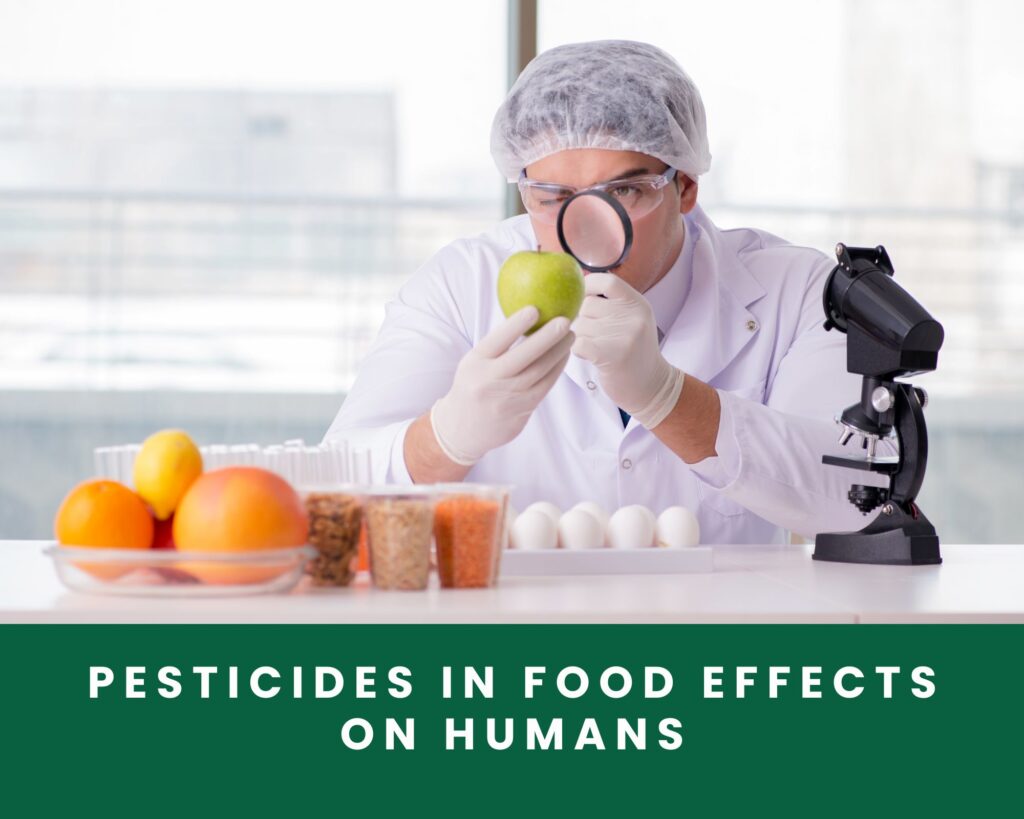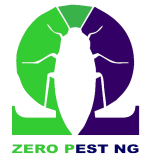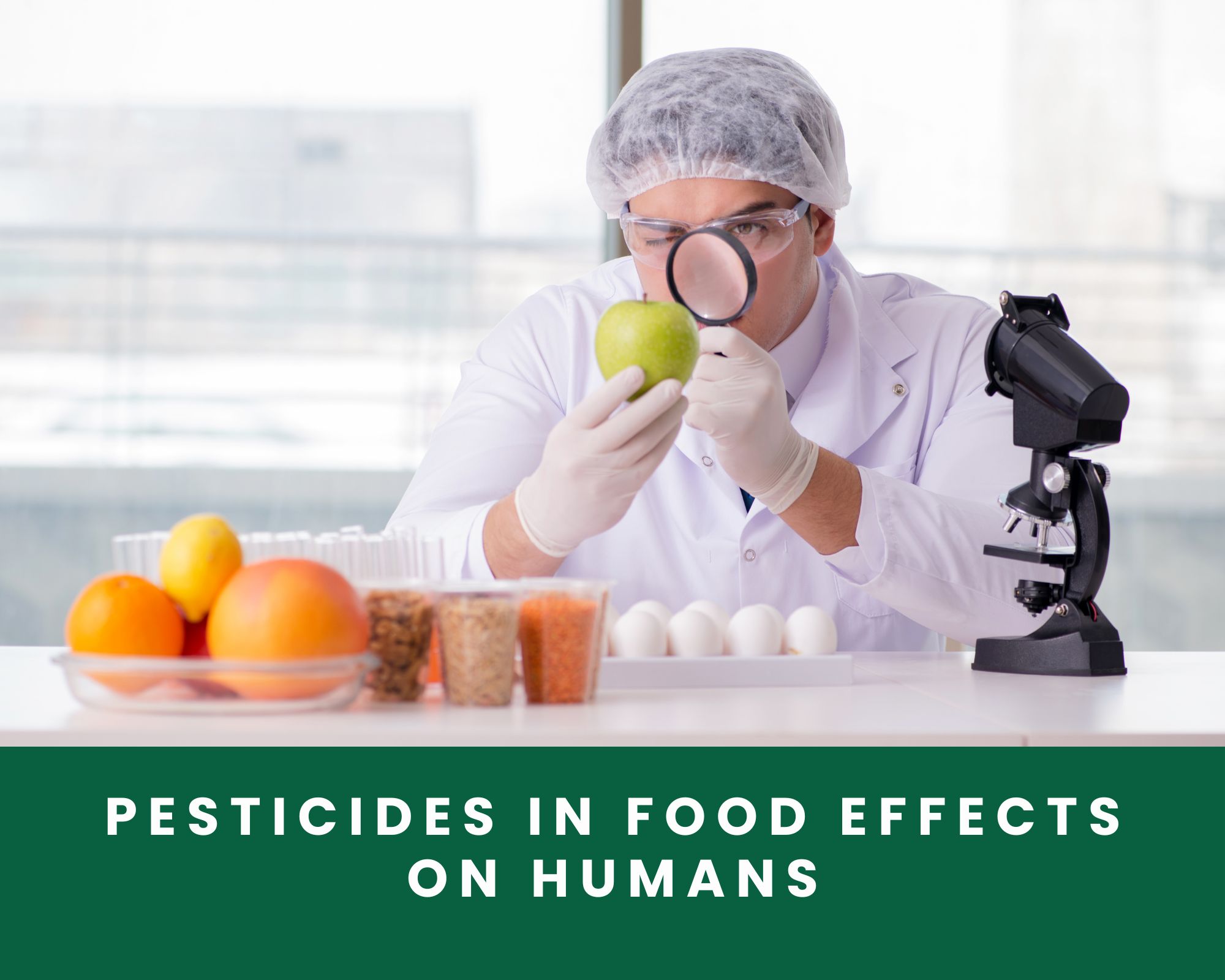Pesticides in Food Effects on Humans
Pesticides are simply chemicals used mostly in agriculture to protect crops against insects, bacteria, fungi, and other pests that may be causing harm to crops. It can also be used in households to get rid of insect and animal pests.

But recently, organic pesticides are being advertised more because they are safer than regular chemical pesticides. The chemicals in pesticides can be toxic to humans and may lead to many illnesses like reproduction issues, cancer, and so effects on the immune system and the general human body.
When these pesticides are used in the farmland to get rid of pests that are perching or hidden beneath the soil, it is inevitable that a little bit gets on the crop. Even though you decide not to use pesticides in your home and try to stay away from them, it is still likely that they may be in the food you consume.
Many individuals are worried about pesticides in food. We will need to see what pesticides are and the kind of pesticides that exist to be able to deduce how they land in our food.
Everything You Need To Know About Pesticides
Pesticides are chemicals used to control pests in farmlands, homes, and even food storage facilities. There are different types of pests, so that means there are different kinds of pesticides too. Some of them are;
Herbicides
These are pesticides that are used to kill unwanted plants (weeds) growing where they are not wanted. It is used around houses to make the environment clean and around farms to improve crop yield. You cannot spray herbicides on farmland to prevent weeds, instead, you’ll have to spay it on growing weeds to get rid of them.
Insecticides
There is the most commonly used pesticide around. They are used to get rid of insect pests that are lurking around houses and farms.
Rodenticides
Used to get rid of rodents and vermin.
Fungicides
This type of pesticide is used to rid crops of fungal rot or to prevent fungal diseases.
Normally, pesticides were created to just get rid of pests without having any negative or toxic effect on the humans using them. But with the resistance that pests have gotten, the chemicals in pesticides have gotten stronger to get rid of them, thereby affecting humans also.
This can lead to health and also environmental hazards. You may be wondering if pesticides are harmful, well they are very harmful and toxic to humans but the chemicals in them determine how harmful they can get.
Also, the effects on the human body differ depending on how it comes in contact with the body. It can be ingested, inhaled, or just come in contact with the skin. There is a lot of research going on about the health risk that comes with the continuous use of pesticides.
According to research, the most toxic form of pesticides are insecticides and large amounts of this can lead to pesticide poisoning.
Some symptoms of this are;
- Insomnia
- Stooling
- Vomiting
- Nausea
- Body aches
Because pesticide poisoning has the same symptoms as some popular illnesses, it is very hard to be detected on time. If the symptoms are severe, it would be best if the individual involved is instantly rushed to the hospital.
Pesticides in Food: Effects on Humans
Pesticide residue can be found in food and water that we consume every day as they usually run off fields when it rains and enters into the watercourse.
For food, spraying pesticides on crops leaves some residue on the food is why it is always advised to thoroughly wash your food production. Pesticide exposure is more common for those who work regularly with pesticides like farmers, pest control workers, and the like.
Some effects of pesticide exposure in humans are
Those who work regularly with pesticides should always wear protective kits to keep themselves safe and away from pesticides.
- High risk of Parkinson’s disease.
- Increased risk of cancer.
- Increased risk of Alzheimer’s disease.
- Respiratory failure.
- Reproductive issues.
The World Health Organization studies show that there are no high levels of pesticides in food production. Although it is unclear the number of pesticides found in food, it is known that it is not as much and does not cause as much harm as directly getting in contact with pesticides.
Also, the levels of pesticide residue in food can be reduced by properly washing your food and also cooking it. Peeling and skinning fruits and vegetables can remove pesticides from the outer layer of the food.
Some food that has the highest pesticide residue are:
- Strawberries
- Celery
- Grapes
- Kale
- Apples
- Tomatoes
- Pears
- Potatoes
- Onion
- Sweet corn
- Avocado
- Pineapple
- Cabbage
- Eggplant
- Broccoli
- Mushrooms
- Spinach
Although you cannot completely avoid pesticide residue in food, you can be more on the safe side by consuming more organic food. Organic food can be expensive, but it is safer to consume than other kinds of food.
Conclusion
Pesticides get rid of pests that are around us, but it also causes as much damage to humans and the environment at large. There is no sure way to get rid of pesticide residue in your food, but you can reduce it by eating food grown with organic pesticides.
To be healthy and avoid pesticide poisoning, make sure you stay as far away from pesticides as you can and eat more organic food.

